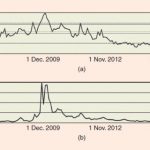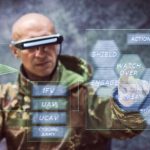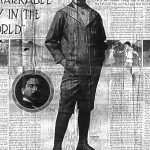Cyberwar is insidious, invisible to most, and is fought out of sight. It takes place in cyberspace, a location that… Read More



Cyberwar is insidious, invisible to most, and is fought out of sight. It takes place in cyberspace, a location that… Read More

The United States is now debating the wisdom of limits on monitoring by the National Security Agency (NSA). While the… Read More

PetaJakarta.org team survey damage along the Ciliwung River using GeoSocial Rapid Assessment Survey Platform (#GRASP) via Twitter, as neighborhood children… Read More

Click HERE to watch video of this performance, including visual elements. This performance art piece was delivered by Katina Michael… Read More

Back in 1997, Katina would use International Telecommunications Union (ITU) estimates of incoming and outgoing voice and data tele-traffic tables… Read More

A Report from the International Planning Working Group on Nanoelectronics (IPWGN) Nanotechnology exploded in scientific publications in the year… Read More

People are busy. The more tools we come up with to help us be faster, smarter, and better at keeping… Read More

“One precious element in the Judeo-Christian tradition is respect for the human person. Each person is of infinite value in… Read More

Figure 1. Popularity of the search terms (a) “Stereoscopy” and (b) “3D television” between January 2007 and October 2016, based on… Read More

Rapid advances in science and technology are opening doors for the fulfillment of human desires in ways that were not… Read More

Heather M. Roff and Peter W. Singer [1] strikingly identify a problem for the next American president in the form… Read More

I sat staring at the computer on February 6th, 2006, thinking about the press release I was about to send… Read More

On December 3, 2016, the world celebrated the 10th anniversary of the adoption of the United Nations Convention on the… Read More

Nanotechnology in the Military The military sector has been investing in nanotechnology solutions since their inception. Internal assessment committees in… Read More

IEEE Technology and Society Magazine contributor Alexander Hayes interviewed Glass Explorer Cecilia Abadie on January 21, 2013. The complete Google… Read More

Wiener was far ahead of his time in recognizing that our habits of technology-fueled consumption pose significant threats to health and the environment. He predicted that within the foreseeable future we would be facing growing coal and gas shortages, growing scarcity of water with which to supply our cities, growing rates of infection due to increased air travel and antibiotic resistance, growing problems related to processed and synthetic foods, growing risks of nuclear power accidents, and growing risks of nuclear war.

The arc of Norbert Wiener’s fascinating life became clear to us one day in the M.I.T. Institute Archives. In one… Read More

My childhood memories of Norbert Wiener are of a strange looking person who came repeatedly from his New Hampshire home… Read More

In this issue of IEEE Technology and Society Magazine we acknowledge one of the quintessential multi-disciplinarians of our time, Dr…. Read More

In December 17, 2014, T&S Editor-in-Chief Katina Michael interviewed Archbishop of Ottawa (Ret.) Lazar Puhalo, of the Orthodox Church in… Read More